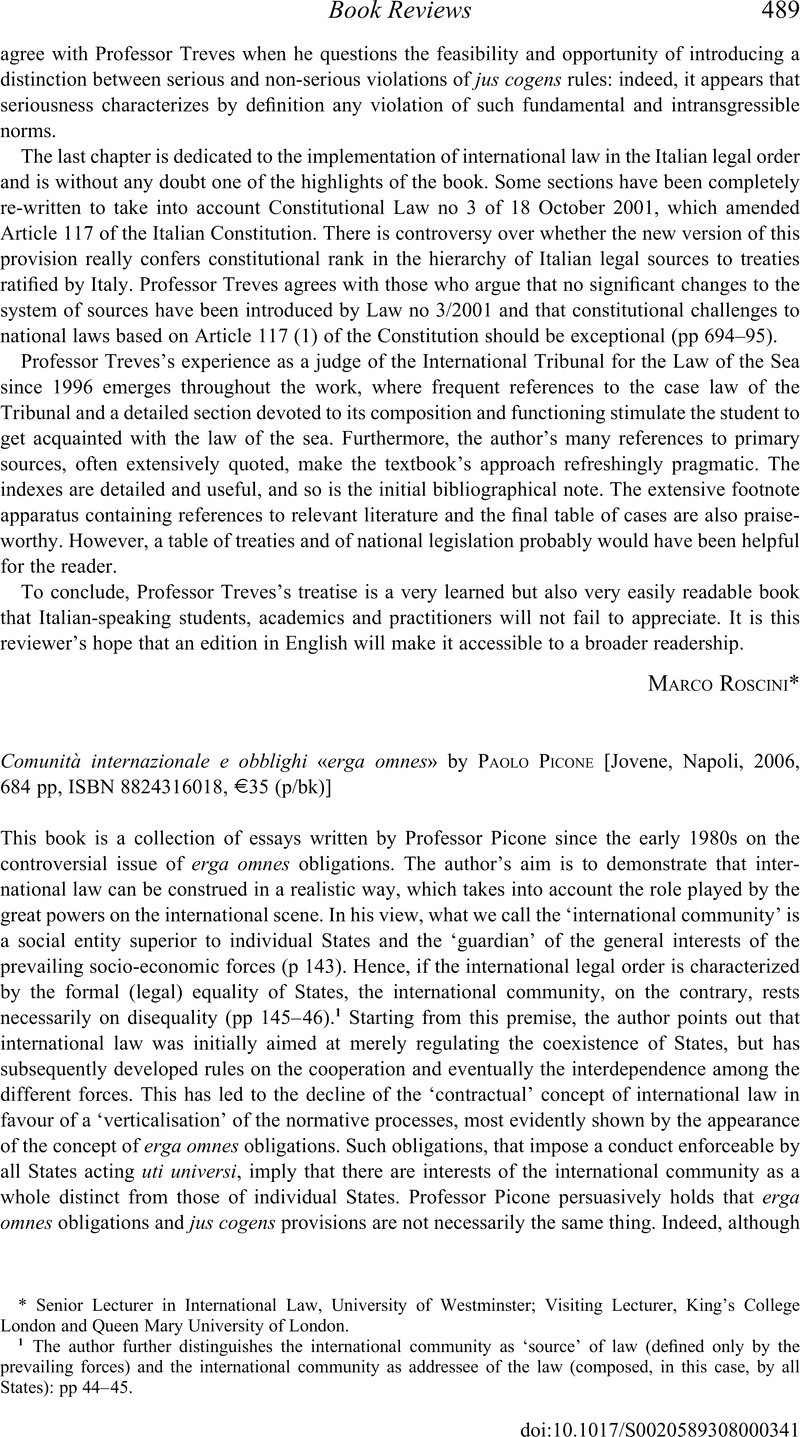No CrossRef data available.
Published online by Cambridge University Press: 09 May 2008

1 The author further distinguishes the international community as ‘source’ of law (defined only by the prevailing forces) and the international community as addressee of the law (composed, in this case, by all States): pp 44–45.
2 The creation of the International Criminal Tribunal for the former Yugoslavia is thus seen by the author as a sanction adopted by the Security Council to react against the violations of erga omnes obligations committed by the belligerents in Yugoslavia (p 358).
3 According to Professor Picone, disarmament is not an erga omnes obligation and the links between Iraq and international terrorism were not sufficiently established (pp 490–97). What the author seems to imply is that, for customary international law to justify a forcible reaction, the serious violation of erga omnes obligations must be occurring at the time the intervention takes place, as it is well-known that the Saddam Hussein regime had committed serious violations in the past, for instance against Kurds and Shiites.
4 In Professor Picone's opinion, if Art 2 (4) does not apply to violations of erga omnes obligations, then Art 51 is not an exception to the prohibition of the use of force contained in that provision, but rather an autonomous regulation of the reaction to the crime of aggression in order to protect the related erga omnes obligation (p 256).